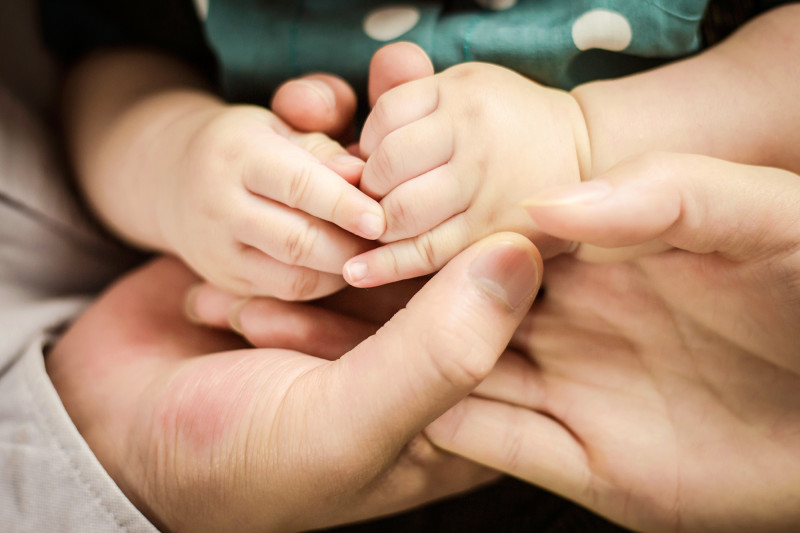Overall, chances that a child will end up with an autism spectrum disorder is around 1 in 100. But the relative risk for autism is two-thirds higher for children born to dads older than 50, compared with kids born to dads in their 20s, the study found.
Other research has suggested that this may be because as men get older, their sperm are more likely to contain random mutations that may, theoretically, contribute to disorders such as autism in their kids.
Researchers know less about why the children of older mothers more often have the disorder. The study found that the autism rate was 15 percent higher in children born to mothers in their 40s, compared with those born to moms in their 20s. Autism rates rose higher still when both parents were older.
"Of course, age is just one factor that may contribute to autism risk," Reichenberg tells Shots. "I think the first thing to remember is that most children who are born to older parents won't have autism."
When doctors work with prospective mothers who are over 35, it's standard to discuss the risks of pregnancy for older women. "This study shows it may be worth also asking how old the woman's the partner is, as that could potentially affect risks."
The figures concerning very young mothers and parents of discrepant ages are more puzzling, Reichenberg says.
Autism rates were 18 percent higher among children born to teen moms than among kids born to moms in their 20s. And when the gap between a mother and father's age widened, the chance that their child would develop autism went up.
Previous studies haven't been big enough to look at autism trends in such detail, he says. "Still, we didn't really get into this study expecting to see these figures."
Explaining the numbers is complicated, he notes, since so many different factors may be in play.
"All we can do is perhaps speculate," Reichenberg says. It could be that a teenage woman's reproductive systems are not fully mature, and that affects the development of her child. Or it could be that younger moms tend to have a lower socioeconomic status in many countries. So a younger mom may lack access to good health care, which, in turn, could affect the developing fetus.
"I think this is very powerful epidemiological work," says Simon Gregory, a genomics researcher at Duke University who wasn't involved in the recent study. "But there are a lot of caveats here as well."
For one, the study didn't take into account complications that mothers may have experienced during their pregnancy, which could affect the baby's odds of developing autism, Gregory says.
Plus, the way that autism is diagnosed in each country is slightly different. Although the researchers tried to account for any discrepancies, even small differences could skew the results, Gregory notes.
"In the research community, we're still trying to figure out how to properly diagnose and classify autism spectrum disorders. And we're a ways away from understanding the underlying mechanisms responsible" Gregory says. "It's a very complex story to tell."
Copyright 2015 NPR. To see more, visit http://www.npr.org/.
9(MDAxOTAwOTE4MDEyMTkxMDAzNjczZDljZA004))

9(MDAxOTAwOTE4MDEyMTkxMDAzNjczZDljZA004))